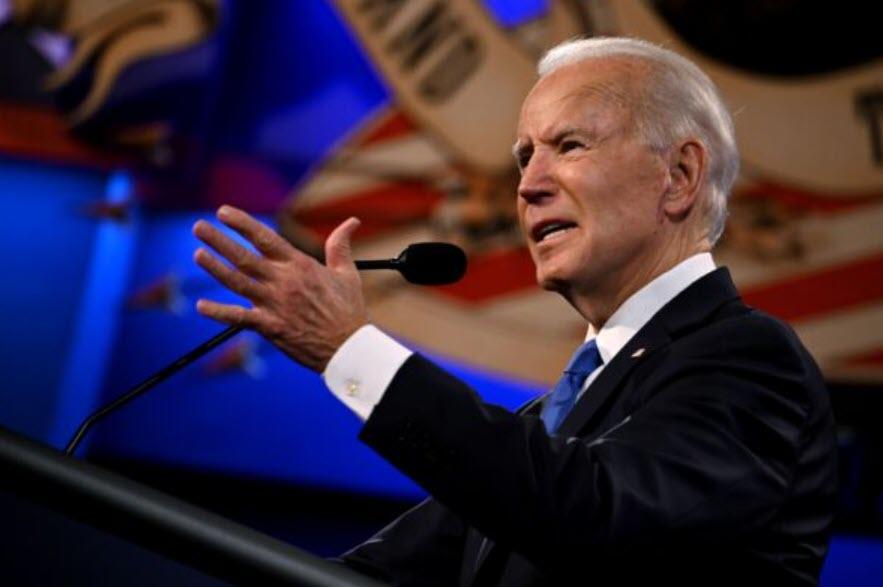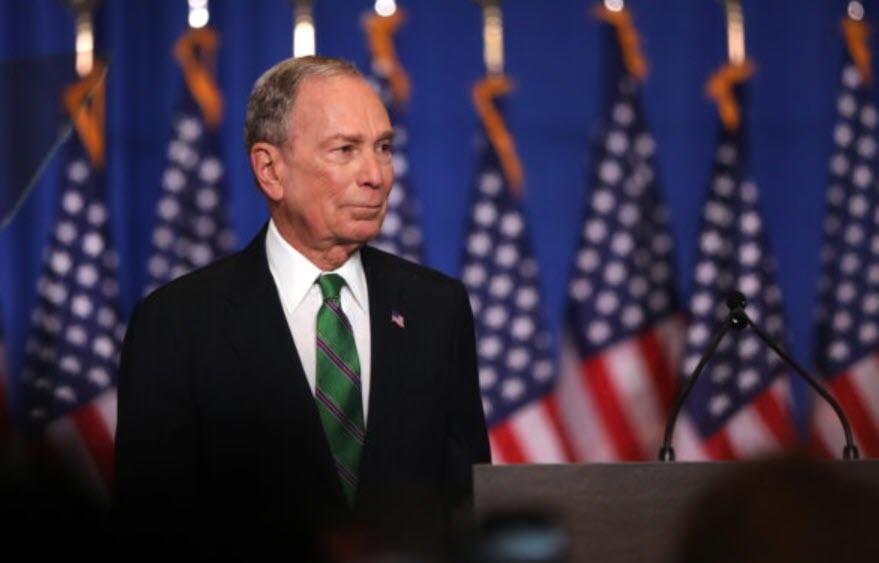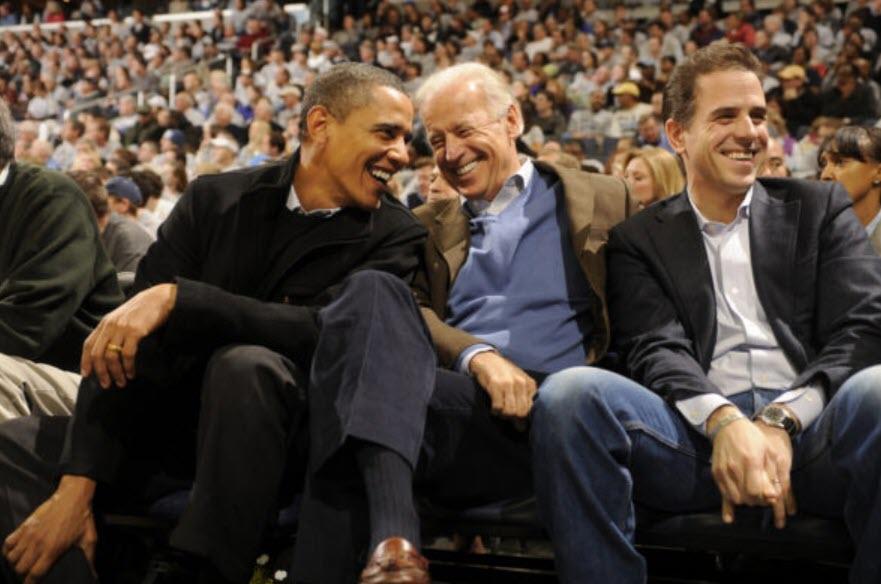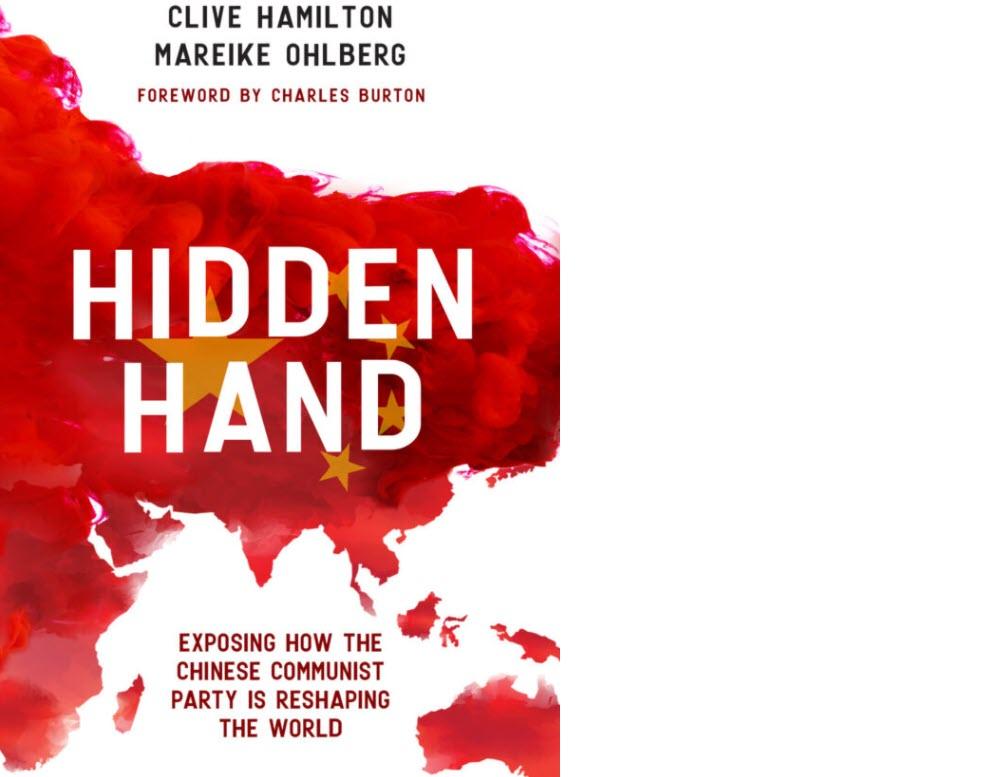China's Elite-Capture Strategy & The Bidens
24 October, 2020
Authored by Clive Hamilton and Mareike Ohlberg via The Epoch Times,.
Excerpted from the book: ‘Hidden Hand: Exposing How the Chinese Communist Party Is Reshaping the World’
In 2018 the well-connected Washington Post columnist Josh Rogin pointed out that China had been building networks of influence in the United States over many years, and that the U.S. government “is preparing for the possibility that the Chinese government will decide to weaponize” them to get what it wants. (Although Beijing is not known to use Russian-style “active measures” in the West, deploying them is only a matter of political calculation.)
One of the CCP’s most audacious penetration operations, Chinagate in 1996, saw a top intelligence operative meeting a naive President Clinton in the White House, along with donations to the Clinton campaign made through people with ties to the Chinese military.
Beijing has been working to gain influence in the U.S. Congress since the 1970s. Through the activities of the CCP’s International Liaison Department, and Party-linked bodies like the China Association for International Friendly Contact, China has made some influential friends. Nevertheless, Congress has for the most part remained skeptical of China, although its voice has been muted at times by the influence of “pro-China” members. The president, the White House, the bureaucracy, think tanks, and business lobby groups have all been targeted by Beijing, to good effect.
Democratic Presidential candidate and former Vice President Joe Biden gestures as he speaks during the final presidential debate at Belmont University in Nashville, Tenn., on Oct. 22, 2020. (Jim Watson/AFP/Getty Images)
Until recently, almost all players in Washington D.C. and beyond were convinced by the “peaceful rise of China” trope, and the value of “constructive engagement.” The common belief was that as China developed economically, it would naturally morph into a liberal state. This view was not without foundation, because the more liberal factions within the CCP did struggle with the hardliners, but in the U.S. it reinforced a kind of institutional naivety that was exploited by Beijing. Many of those who stuck to this view even after the evidence pointed firmly to the contrary had a strong personal investment in defending Beijing.
The billionaire businessman and former New York mayor Michael Bloomberg was a late entrant in the contest to become the 2020 Democratic Party candidate for U.S. president. He is the most Beijing-friendly of all aspirants. With extensive investments in China, he opposes the tariff war and often speaks up for the CCP regime.
Former Democratic presidential candidate Mike Bloomberg addresses his staff and the media after announcing that he will be ending his campaign, in New York City, on March 4, 2020. (Spencer Platt/Getty Images)
His media company has suppressed stories critical of CCP leaders, and Bloomberg himself claimed in 2019 that “Xi Jinping is not a dictator” because he has to satisfy his constituency.
The Washington Post’s Josh Rogin argued that “his [Bloomberg’s] misreading of the Chinese government’s character and ambitions could be devastating for U.S. national security and foreign policy. He would be advocating for a naive policy of engagement and wishful thinking that has already been tried and failed.”
In May 2019 Joe Biden distinguished himself from all of the other candidates for the Democratic Party’s presidential nomination by ridiculing the idea that China is a strategic threat to the United States. “China is going to eat our lunch? Come on, man,” he told a campaign crowd in Iowa City. Biden had for years adopted a soft approach to China. When President Obama’s secretary of state, Hillary Clinton, was taking a tougher position towards China’s adventurism in Asia, Vice President Biden was urging caution. Biden had formed a warm personal relationship with Xi Jinping when Xi was vice president and president-in-waiting.
Hunter Biden (R) with then President Barack Obama (L) and Vice President Joe Biden during a college basketball game at the Verizon Center in Washington on Jan. 30, 2010. (Mitchell Layton/Getty Images)
In his second term, Obama replaced Clinton as secretary of state with the more accommodating John Kerry. The dynamics help to explain why Obama’s 2012 “pivot to Asia” was a damp squib. The United States stood back while China annexed islands and features in the South China Sea and built military bases on them, something Xi had promised Obama he would not do. Breaking the promise has given China an enormous strategic advantage.
Joe Biden cleaves to the belief, now abandoned by many China scholars and most Washington politicians, that engagement with China will entice it into being a responsible stakeholder. The University of Pennsylvania’s D.C. think tank—named, for him, the Penn Biden Center for Diplomacy and Global Engagement—aims to address threats to the liberal international order, yet China is absent from the threats identified on its website: Russia, climate change and terrorism. Biden has spoken about China’s violation of human rights but still clings to the idea of China’s “peaceful rise.”
So does it matter if Joe Biden has a different view of China? It does, because there is evidence that the CCP has been currying his favor by awarding business deals that have enriched his son, Hunter Biden. One account of this is given by Peter Schweizer in his 2019 book “Secret Empires.” Some of his key claims were subsequently challenged and Schweizer refined them in an op-ed in the New York Times (famous for fact-checking). In short, when Vice President Biden travelled to China in December 2013 on an official trip, his son flew with him on Airforce Two. While Biden senior was engaging in soft diplomacy with China’s leaders, Hunter was having other kinds of meetings. Then, “less than two weeks after the trip, Hunter’s firm … which he founded with two other businessmen [including John Kerry’s stepson] in June 2013, finalized a deal to open a fund, BHR Partners, whose largest shareholder is the government-run Bank of China, even though he had scant background in private equity.”
The Bank of China is owned by the state and controlled by the CCP. Hunter Biden’s exact role in the company is disputed, but one expert has said that his share in it would be worth around $20 million.
However, the point here is not the ethics of the Bidens (as the news media have framed it) but the way in which the CCP can influence senior politicians. This “corruption by proxy,” in which top leaders keep their hands clean while their family members exploit their association to make fortunes, has been perfected by the “red aristocracy” in Beijing.
Cover of the book “Hidden Hand” by Clive Hamilton and Mareike Ohlberg.
In the crucial years 2014 and 2015, Beijing was aggressively expanding into the South China Sea while Obama, Kerry, and Biden were sitting on their hands...




No comments:
Post a Comment
Note: only a member of this blog may post a comment.